News
A well-known tropical island’s best kept secret
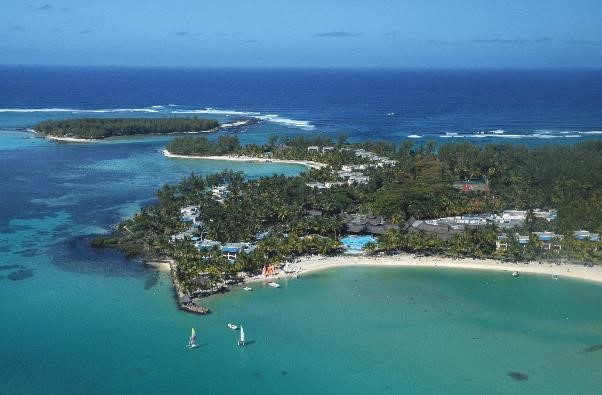
Mauritius has never been punted as a diving destination. Honeymooners go there, families go there to enjoy the world class water sports, golfers go there to enjoy superbly manicured golf courses, but diving? Maybe with your partner on a lazy Sunday. For the Europeans and Scandinavians it’s inexpensive, well run, has fabulous resorts with superb all-inclusive entertainment packages, stunning enclosed lagoons, and white sandy beaches where the kids can safely play. Dive boat launches are among the easiest and most relaxed I have ever experienced anywhere in the world. Boats launch from the lagoon, which is flat calm, and you step onto the boat, either from the beach or off a jetty.
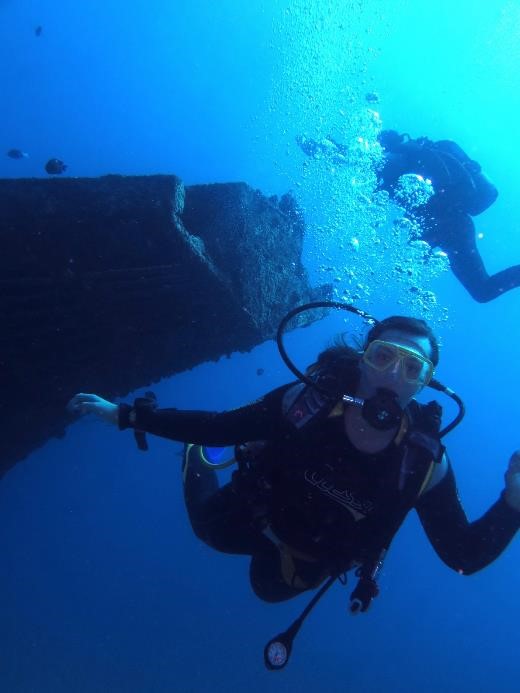 After a thorough briefing on the type of reef and safety procedures in the dive centre, you are good to go. Dive groups are small, and the dive masters and instructors are normally Mauritians, whose safety training and service levels are exceptional. The dive team loads the cylinders on board, and you saunter down to the boat in your wetsuit. You climb onto the boat and kit up your cylinder while the boat putters along to the dive site, normally 5 to 10 minutes away.
After a thorough briefing on the type of reef and safety procedures in the dive centre, you are good to go. Dive groups are small, and the dive masters and instructors are normally Mauritians, whose safety training and service levels are exceptional. The dive team loads the cylinders on board, and you saunter down to the boat in your wetsuit. You climb onto the boat and kit up your cylinder while the boat putters along to the dive site, normally 5 to 10 minutes away.
A backward roll and you are into amazing clarity and breath-taking fish life. In Mauritius, you don’t need to hunt for moray eels. I have countless videos of them hunting and killing on the reefs, and the extremely rare weedy scorpion fish is a superb example.
The visible re-growth of new corals and the re-establishment of coral reefs on this fabulous holiday island playground is undoubtedly world news.
Mauritius reefs are fairly deep on the global scale and to a certain extent they have been protected from the worst of the ravages of global over-heating of the sea.
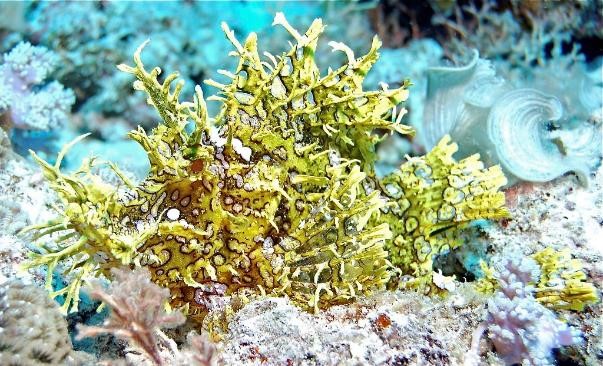
Against the global trend, where worldwide reefs are suffering from damage caused by over-population, over-fishing and pollution, there are tiny acrapora corals breaking through the previously dead areas of reef. Ever cautious, the scientists still have to establish the rate of growth, and the Marine biologists at Reef Mauritius in Pereybere are planning to put down coral growth plates to establish the rate of growth.
It’s also probably the safest place in the world to live right now, with a benign climate, unobtrusive governmental controls and almost zero crime. If you leave your handbag on the seat in the Mahebourg airport public lounge and go back to look for it an hour later after trying to check in unsuccessfully without your passport, it’s still there. If you leave your flip flops on the beach they are still there when you go to fetch them a week later. I have done both.
How does a nation that for centuries depended for its livelihood on sugar farming and subsistence fishing ever change its economy, and encourage its marine-dependent population to protect their resources? Mauritius did, and against the world trend, the coral reefs are re-growing.
The Mauritian Government incentivised its population away from sugar cane towards tourism in the early part of the century, and passed protective legislation to limit damage to the undersea world from over-fishing, agricultural chemical run-off, and to clean up the disposal of sewerage and encourage aquaculture.
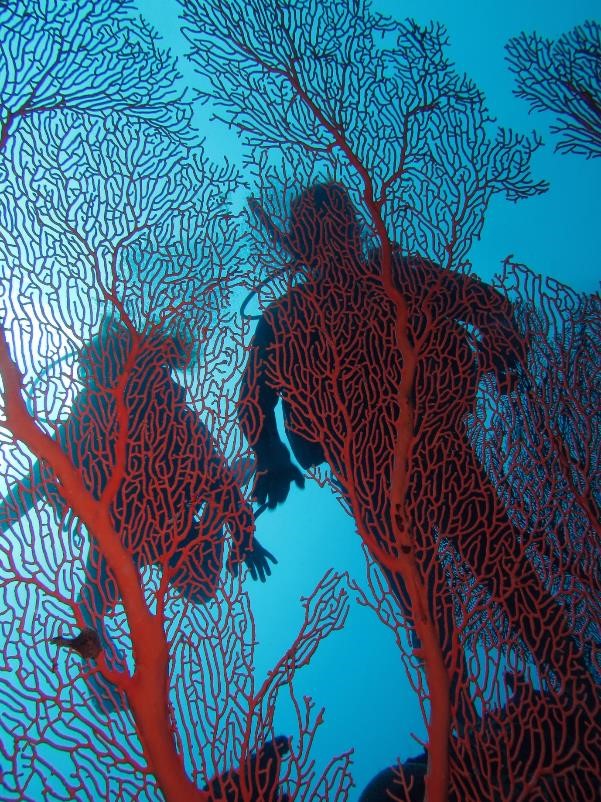
The legislation was clever, as it did not confront the sugar industry with dramatic change. Instead of passing draconian laws, Government introduced incentives that made the sugar companies happy to shift their focus. The IRS, or Integrated Resort Scheme was introduced to entice sugar farming companies to partner with property developers and build spectacular lifestyle resorts around the island. This not only limited sugar planting, with its chemical overspill into the sea, it also enriched the local population, weaning it away from subsistence level fishing.
The government passed legislation to enable the creation of protective tourism-based entities whose main entertainment offering was the marine world. High end five and six star tourist resorts sprang up on the most beautiful of the Island’s beaches, and of course it was in their commercial best interests to protect their primary attraction, and the resorts zealously guard their maritime resources. Most resorts have an affiliated dive operator, and all of them offer superb service to divers. Francois Besson of Diving World is typical of these, with a powerful conservation policy and a strong affiliation to one of the world’s leading resort chains.
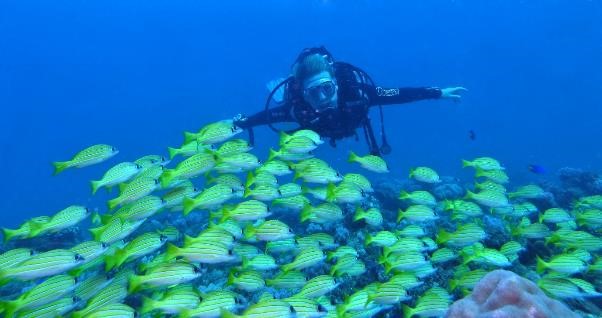
With the construction of Cyber City at Ebene, and the introduction of high speed fibre, the Mauritian population had an alternative source of revenue in the form of IT based activities and above all of call centres. This is a godsend for both English and French speaking companies, as Mauritius has a 95 percent literacy rate, and a highly intelligent labour pool, so the Islanders became less dependent on fishing for their daily meal. Wealth lessens any population’s dependence on its natural resources. The Mauritius supermarkets are packed with shoppers every evening and over weekends. Much easier to buy your food from the local supermarket than to get up at 4am, wheel the engine down to the boat, paddle out in a tiny skiff to load it up, then travel for 2 hours to the local fishing ground.
Mauritius undoubtedly offers some of the world best diving. It is varied, and can be relaxed, dramatic, adventurous or simply fun. The spectacular volcanic structure of the island lends itself to deep diving, where the deco divers can enjoy some spectacular scenery in over 40 metre viz where massive shoals of pelagic fish congregate. Many Europeans spend the winter months in Mauritius, diving with Ocean Spirit, and exploring untouched reefs.
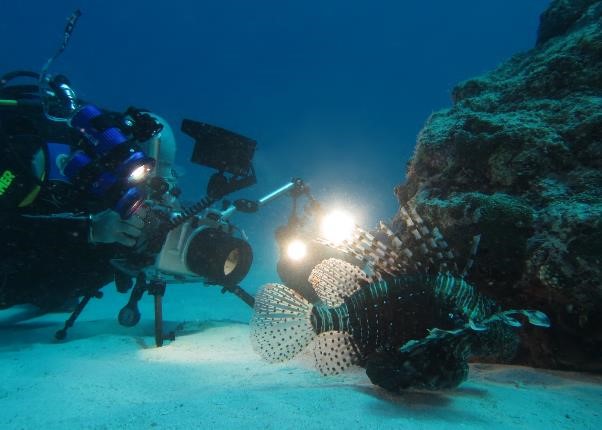
There are sensational dive sites on the East at Bel Mar and in the North in Pereybere where the current is so strong it’s like riding an undersea wave. There are mid-water cleaning stations where the giant tuna come in to be attended by minute cleaner wrasses and damsels, and increasing numbers of hunting barracuda and blue-fin kingfish. There are secret islands off-shore where there are washing machine circular holes filled with the oceanic white-tip sharks who come to spend the daylight hours sleeping, without fear of losing the water-flow over their gills that they need in order to stay alive.
Each reef is different, and all of them have something to offer the recreational diver, and of course it’s a wide-angle photographer’s paradise. In summer the viz can go up to 80 metres, and the lowest I have dived in was 15m viz in mid-winter on a turning tide.
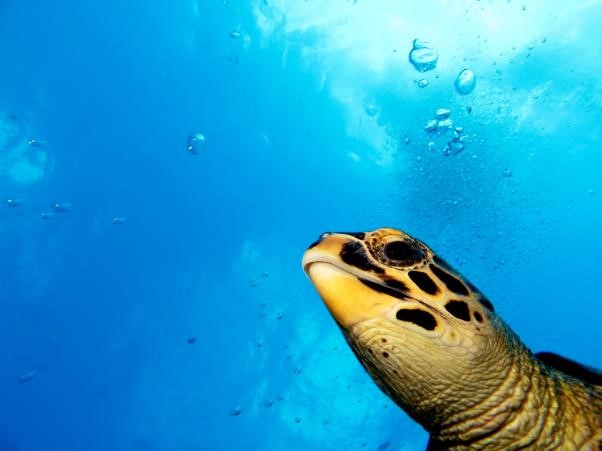
It is really exciting to see the once-dead brown corals sprouting new polyp-tips, and to see the burgeoning growth of the soft corals. With the growth of the soft corals come the coral crabs, banded pipe fish and bower shrimps, so Mauritius is rapidly becoming a paradise for macro photography. With the growth of the corals comes protection for the eggs of the shoaling fusiliers, big eyes, glow-fish, snappers and goat fish, and these are now showing up in massive hatchings that bring in the game fish.
Diving in Mauritius is exciting, and different from anywhere in the world.
It’s an Island with its reefs reborn through the clever intervention of an enlightened government.
[hr style=”single”]
Sources: CORALS and Indo-Pacific Reef Guide by Harry Erhardt and Daniel Knop
Pics: Jill Holloway
Pics: Chrystelle Besson Diving World
© Ocean Spirit
Gear News
Introducing the TR-80, IR-50 and CS-30 Regulators from DYNAMICNORD

Whether you are a beginner or a professional diver – with the three new main regulators from DYNAMICNORD, everyone will find their favourite regulator. They all look super stylish.
Excellent performance with the TR-80
Quality and performance are the be-all and end-all for regulators. It is not for nothing that the TR stands for Tec Reg. The innovative design of the TR-80 guarantees absolute reliability – even in ice-cold waters.

Perfect breathing effort at 0.8 J/l / certified for diving in waters below 10 degrees / structural design made of solid brass for best cold protection / membrane-compensated design with dry seal of the first stage / reduced exhalation effort thanks to optimized exhalation membrane and bubble deflector / adjustable Venturi (dive/predive) and adjustment knob for individual inhalation comfort / innovative design of the front cover prevents free-flow in strong currents or when diving with scooters / design made of sandblasted brass, matt chrome finish / 2 HP and 4 LP outlets / mouthpiece made of high-quality, anti-allergic silicone for maximum comfort.


Amazing underwater adventures with the IR-50
The IR-50 is the top regulator for advanced and experienced divers. Natural breathing is the essence of this regulator.

Ideal breathing effort at 0.8 J/l /certified for diving in waters below 10 degrees / compensated membrane / adjustable venturi (dive/predive) and adjustment knob for individual inhalation comfort/ outlet valve and deflector for minimum exhalation effort and reduction of bubbles on the face / design made of sandblasted brass, matt chrome finish / 2 HP and 4 NP outlets / mouthpiece made of high-quality, anti-allergic silicone for maximum comfort.


The Workhorse – our CS-30
For diving centres and diving beginners – the workhorse stands for strong construction, reliability and robustness. Perfect for your training.

Optimal breathing effort at 0.8 J/l /recommended for diving in waters above 10 degrees / non-compensated piston / adjustable venturi (dive/predive) / outlet valve and deflector for minimum exhalation effort and reduction of bubbles on the face / design made of sandblasted brass, matt chrome finish / 1 HP and 3 NP outlets / mouthpiece made of high-quality, anti-allergic silicone for maximum comfort.


Octopus OP-30
The OP-30 is the ideal addition to all DYNAMICNORD regulators. It is identical in construction to the CS-30.

The TR-80, IR-50, CS-30 (DIN & INT) regulators and the Octopus OP-30 are available from DYNAMICNORD dealers and in the online store.
DYNAMICNORD – Your Outdoor Companion.
Marine Life & Conservation
Paul Watson Released as Denmark Blocks Japan’s Extradition Bid

Renowned anti-whaling activist Paul Watson has been released from custody in Greenland after spending five months in detention. Denmark’s Justice Ministry rejected Japan’s request for his extradition, citing insufficient guarantees that his time already served in custody would be credited against any potential sentence.
The 74-year-old Canadian-American was arrested on July 21 in Nuuk, Greenland’s capital, when his ship docked to refuel. His arrest was based on a 2012 Japanese warrant related to a 2010 encounter in Antarctic waters. Japan alleged Watson obstructed operations and caused damage to a whaling research ship during efforts to disrupt illegal whaling. Watson has consistently denied these claims, maintaining his commitment to marine conservation.
Denmark, which oversees extradition matters for Greenland, concluded that while the legal conditions for extradition were met, the lack of assurances from Japan regarding time-served credit made extradition untenable.
In a video shared by his foundation, Watson expressed gratitude and relief, saying, “After five months, it’s good to be out… and good to know they’re not sending me to Japan.” He added that the most difficult part of his time in custody was being separated from his two young sons.
Watson is a pioneering figure in marine conservation, known for founding the Captain Paul Watson Foundation in 2022 after decades of activism with the Sea Shepherd Conservation Society. His bold efforts to defend marine life have earned him widespread support, including from celebrities and conservationists. His work has also been featured in the acclaimed reality TV series Whale Wars.
Watson’s lawyer, Jonas Christoffersen, praised the decision, stating, “We are happy and relieved that Paul Watson is now free.” He added that Watson is eager to reunite with his family and continue his vital work.
The arrest occurred while Watson’s vessel, the M/Y John Paul DeJoria, was en route to the North Pacific with a team of 26 volunteers to intercept a Japanese whaling ship. His foundation described the arrest as politically motivated and emphasized that Watson’s actions were focused on ending illegal whaling practices.
Japan resumed commercial whaling in 2019 after leaving the International Whaling Commission, asserting that whale meat is a cultural tradition. Conservationists, however, continue to challenge these practices, highlighting their impact on marine ecosystems.
Despite the challenges, Watson remains steadfast in his mission to protect marine life and bring attention to whaling practices. His dedication to ocean conservation has made him a globally respected advocate for the environment.
-

 News2 months ago
News2 months agoIconic SS United States to become the World’s Largest Artificial Reef
-

 News3 months ago
News3 months agoBook Review – 52 Assignments: Underwater Photography
-

 Gear News3 months ago
Gear News3 months agoDYNAMICNORD – New German diving brand enters the British market
-

 News3 months ago
News3 months agoExploring Cenote El Pit: A Diver’s Dream
-

 Gear News3 months ago
Gear News3 months agoTry BARE drysuits (and maybe even win one!) this Friday with Sea & Sea at North West Dive Fest
-

 Marine Life & Conservation3 months ago
Marine Life & Conservation3 months agoBook Review: Coral Triangle Cameos
-

 Blogs2 months ago
Blogs2 months agoDive the Egyptian Red Sea this Autumn with Regaldive
-

 News3 months ago
News3 months ago2024 Ocean Art Underwater Photo Competition Announced















